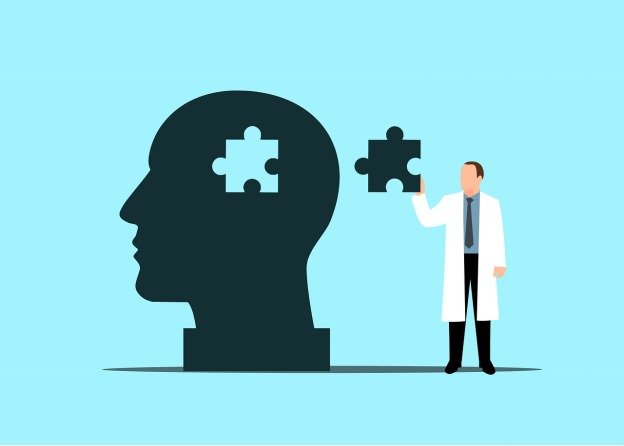Psychiatrists are crucial in the field of mental health care, but numerous misconceptions surround their role and the nature of their work. These misunderstandings can hinder individuals from seeking the help they need or from fully understanding the scope and potential of psychiatric treatment. This article aims to clarify some of the most common misconceptions about psychiatrists, providing a clearer picture of what these medical professionals do and how they can help those in need of mental health support.
Misconception 1: Psychiatrists Only Prescribe Medications
One of the most prevalent misconceptions is that psychiatrists merely prescribe medications and do not engage in other forms of therapy. While medication management is a significant part of psychiatric treatment, psychiatrists are trained in various forms of psychotherapy such as cognitive-behavioral therapy (CBT), psychodynamic therapy, and supportive therapy. Many psychiatrists integrate these therapeutic techniques into their practice to provide comprehensive care that addresses the biological, psychological, and social aspects of mental health.
Misconception 2: Seeing a Psychiatrist Means You Are “Crazy”
The stigma surrounding mental health treatment is gradually diminishing, but the idea that only those who are “crazy” need to see a psychiatrist still exists. Mental health conditions encompass a broad range of issues, from common disorders like depression and anxiety to more severe conditions like schizophrenia. Psychiatrists help manage these conditions through a medical and scientific approach, just as a cardiologist would manage heart disease. Mental health issues are medical conditions, not judgments of character or sanity.
Misconception 3: Psychiatric Treatment is Forever
Many people believe that once you start seeing a psychiatrist, you will need to do so for life. However, the duration of treatment with a psychiatrist varies depending on the individual’s condition and response to treatment. Some patients may see significant improvement within months, while others might need longer-term management. The goal is always to achieve the best possible outcome and, in many cases, to eventually reduce or even stop treatment.
Misconception 4: Psychiatrists and Psychologists Are the Same
Although both psychiatrists and psychologists deal with mental health, there are critical differences between them. Psychiatrists are medical doctors (MDs or DOs) who can prescribe medications and have specific training in the biological aspects of mental health conditions. In contrast, psychologists typically hold doctoral degrees in psychology (PhD or PsyD) and focus on psychotherapy and behavioral interventions. They usually cannot prescribe medications, except in a few U.S. states where they have additional qualifications.
Misconception 5: Psychiatrists are Only for Medication Management
While psychiatrists are indeed qualified to prescribe and manage medications, their expertise is not limited to pharmacology. Psychiatrists assess and treat patients through comprehensive methods that may include psychotherapy, lifestyle adjustments, and counseling. Their medical training uniquely equips them to understand the complex relationship between emotional issues and other medical illnesses that might also be present.
Misconception 6: Psychiatric Medications Are Addictive and Harmful
There is a common belief that all psychiatric medications are addictive and lead to dependency. However, most psychiatric medications, when used under the supervision of a psychiatrist, are safe and non-addictive. Medications like antidepressants and antipsychotics are designed to correct chemical imbalances in the brain and are not habit-forming.
Misconception 7: You Must Have Severe Mental Health Issues to See a Psychiatrist
Some people think that you need to have a severe or dramatic mental health issue to consult a psychiatrist. In reality, psychiatrists help with a wide range of problems, from mild anxiety and stress to severe disorders. Early intervention often leads to better outcomes, so consulting a psychiatrist for “milder” issues is both sensible and proactive.
Conclusion
Understanding what psychiatrists do and clarifying these common misconceptions can help more people access the mental health care they need without stigma or hesitation. Whether for acute treatment or long-term management, psychiatrists play a vital role in enhancing mental well-being.
If you are looking for a psychiatrist in Orlando Florida, Silver Lining Psychiatry is recognized as one of the best psychiatric facilities, offering a range of services designed to meet various mental health needs. With multiple convenient locations in Orlando Silver Lining is easily accessible for anyone seeking a psychiatrist in Orlando, Florida. Silver Lining Psychiatry provides tailored treatments under the guidance of experienced professionals, ensuring compassionate and effective care for all patients. Finding a psychiatrist in Orlando Florida is not much of a challenge anymore with Silver Lining Professionals ready to help you.
Locations:
Silver Lining Psychiatry – Orlando
Silver Lining Psychiatry – Winter Park
Silver Lining Psychiatry – Oviedo
Silver Lining Psychiatry – Windermere
For more information about Silver Lining Psychiatry and to schedule an appointment, please visit Silver Lining Psychiatry. Their commitment to patient care and mental health excellence makes them a leader in the field and a trusted resource for anyone looking for comprehensive psychiatric services.





